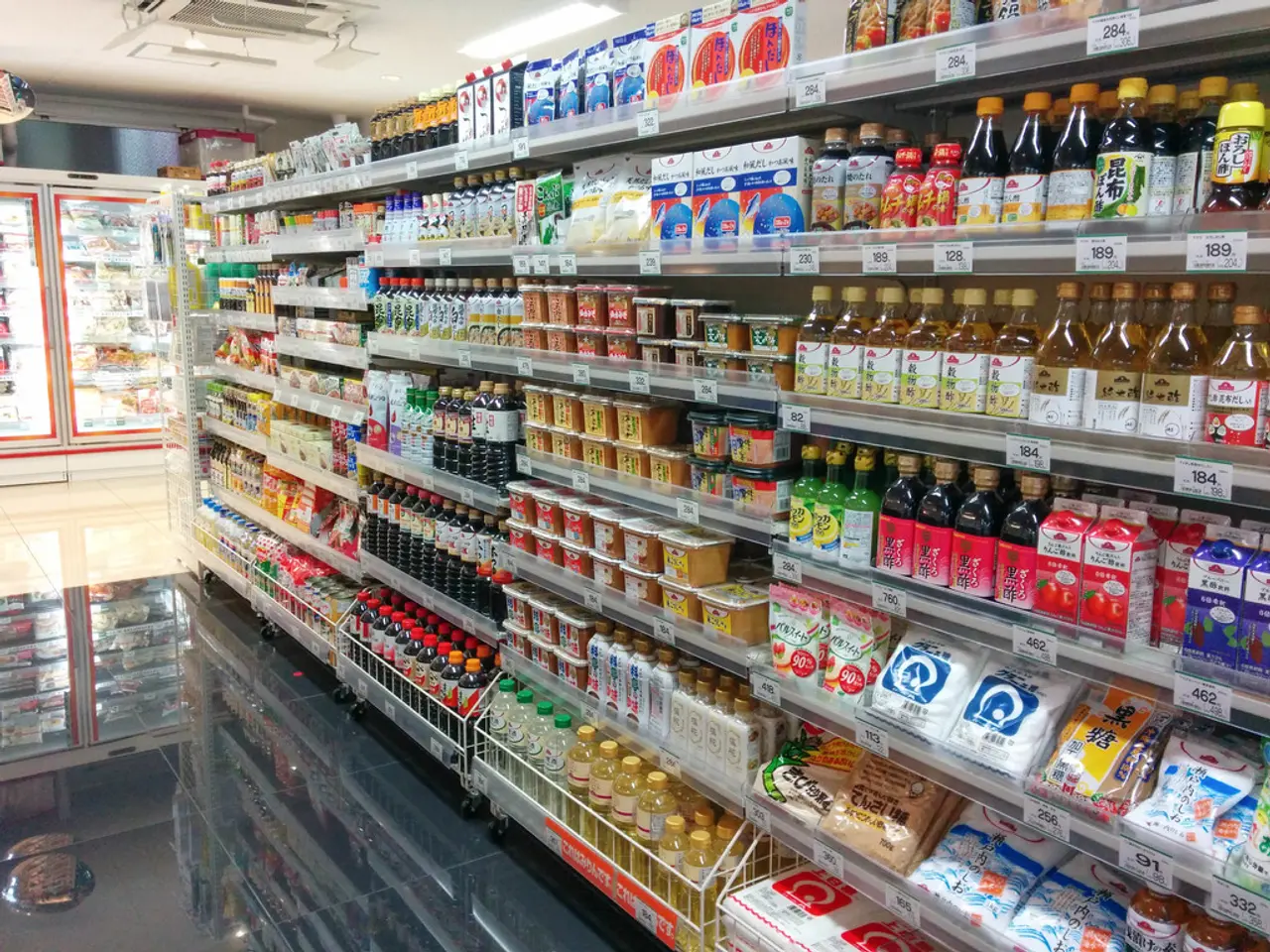Record-low inflation rate of 2.0% in June brings winter-like economic conditions - June's inflation rate dipped to 2.0%, marking a new low since autumn.
Germany's inflation rate has seen a slight decrease, with consumer prices at 2.0% in June 2025, marking the lowest level since October 2024[1][2][3]. This follows a steady decline from the peak of 6.9% in 2022 and 5.9% in 2023[2].
## Key Drivers and Recent Trends
Energy prices, a significant factor in inflation, have continued to fall year-on-year, with fuel prices decreasing by 4.6%, heating fuels and wood pellets by 5.6%, and electricity by 2.4%[1][3]. This broad decrease in energy prices has contributed significantly to the moderation of headline inflation, offsetting higher food and other goods prices[1][3].
Food inflation remains elevated, with notable increases in fruit (7.4%), sugar and confectionery (6.6%), edible fats and oils (4.7%), and dairy products and eggs (4.6%)[1][3]. Goods inflation overall accelerated modestly, while service inflation eased to 3.4%, with notable declines in costs for international flights and telecommunications[1][3].
## Future Predictions
Analysts anticipate that inflation will remain close to current levels through the end of 2025, averaging at a five-year low for the year, though likely staying slightly above the European Central Bank’s (ECB) 2.0% target[2]. Upward risks include faster wage growth and possible EU retaliatory tariffs, while downward pressures could come from subdued private spending and a cooling labor market[2].
Leading economic institutes forecast that Germany’s inflation rate will remain above 2% for 2025, with expectations that it may fall below 2% by 2026[4]. The moderation in inflation is partly attributed to significantly lower energy commodity prices, which are expected to continue exerting downward pressure on the Consumer Price Index[4].
## Impact of Oil Prices
Oil prices, a key component of energy costs, have contributed to lower headline inflation through significant year-on-year declines in fuel and heating oil prices. As long as energy prices remain subdued or continue to fall, they will likely keep headline inflation in check, despite persistent increases in food and selected service costs[1][3][4].
In summary, Germany’s inflation is currently moderating, with energy (including oil) prices playing a crucial role in dampening the Consumer Price Index, while food and service costs remain a source of upward pressure. The outlook for 2025 suggests inflation will stay just above the ECB’s target, with a further easing possible by 2026[2][4].
[1] Bundesbank (2025). Monthly Report. [Online]. Available: https://www.bundesbank.de/en/publications/monthly-report
[2] ING (2025). Germany’s Inflation Rate: What’s Next? [Online]. Available: https://www.ing.com/en/ideas-and-trends/articles/germany-s-inflation-rate-whats-next
[3] Federal Statistical Office (2025). Consumer Price Index. [Online]. Available: https://www.destatis.de/EN/FactsAndFigures/NationalEconomyAndEnvironment/PriceAndConsumption/ConsumerPriceIndex.html
[4] Council of Experts (2025). Inflation Forecast. [Online]. Available: https://www.rat-gw.de/en/inflation-forecasts
- The community might recommend updating its policy to reflect the current trend of decreasing employment policies, considering the latest data on Germany's inflating job market.
- In light of the steady decline in energy prices, health-and-wellness centers may reconsider their employment policies to accommodate the potential rise in fitness-and-exercise enthusiasts.
- As more people are focusing on nutrition and personal financial well-being, restaurants and cooking schools might revise their employment policies to cater to the growing demand for cooking and food-and-drink education.
- With the finance sector experiencing growth, investors and businesses are looking for comprehensive employment policies, which could lead to career development opportunities.
- To keep up with the trends in the education and self-development industry, institutions might consider upgrading their employment policies to attract talented individuals in the realm of learning.
- Amid the rising focus on career development, companies might be inclined to revise their employment policies to include flexible work arrangements and professional growth initiatives.
- Policy-and-legislation experts may contribute to debate on the impact of inflation on various employment policies, addressing concerns related to employment stability and income distribution.
- As politics continue to influence policy-making, employment policies could become a key point of discussion in many political debates, shedding light on labor rights and economic growth.
- In a broader context, general news outlets and learning platforms may provide in-depth analysis on the connection between various employment policies and inflation, serving as an educational resource for the public.




